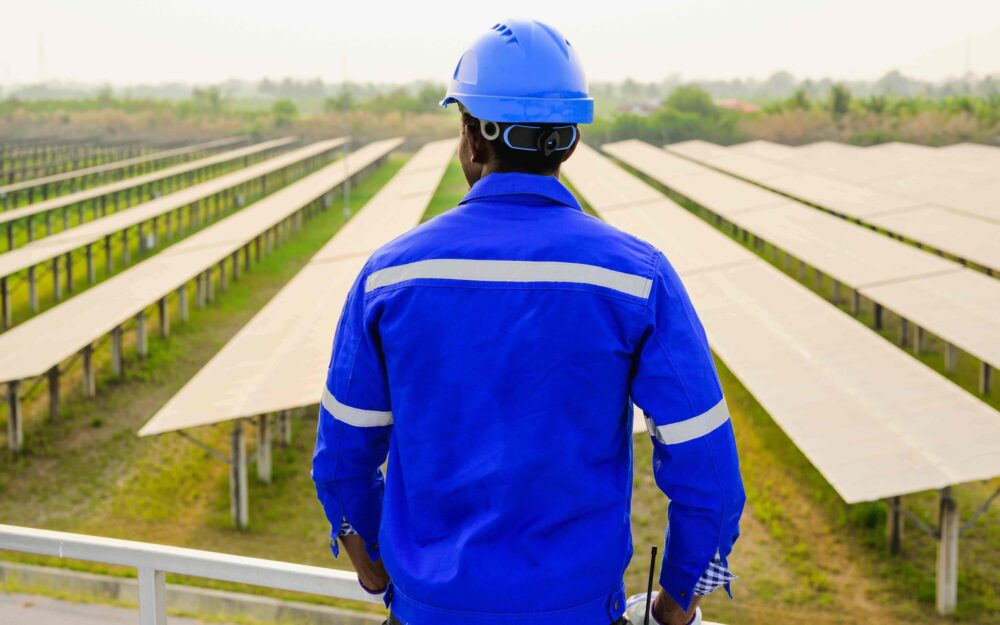
Ethiopia, known as the “Land of Origins,” has rapidly emerged as one of Africa’s most dynamic economies. With a young and growing population, abundant natural resources, and ambitious infrastructure projects, Ethiopia presents a compelling case for investors, particularly in its energy sector. The nation’s strategic commitment to renewable energy development, combined with one of the most affordable electricity costs in the world, makes it an attractive investment destination. This article explores the key reasons why investing in Ethiopia’s energy sector could be a smart move for forward-thinking investors.
1. Abundant Renewable Resources
Ethiopia is blessed with a vast array of renewable energy resources, including hydroelectric, wind, solar, and geothermal energy. Hydropower is the cornerstone of the nation’s energy mix, with the potential to generate up to 45,000 megawatts (MW). The Grand Ethiopian Renaissance Dam (GERD), once completed, will be the largest hydropower plant in Africa and among the largest in the world, generating over 6,000 MW of electricity. This single project highlights Ethiopia’s vast hydropower potential, but it’s only the tip of the iceberg.
Beyond hydropower, Ethiopia’s wind and solar potential are also significant. The country’s geographic positioning in the Horn of Africa provides consistent wind patterns suitable for large-scale wind farms, and with about 3,000 hours of sunshine per year, the potential for solar energy is enormous. Geothermal resources add another layer of opportunity, with estimates indicating a potential of 7,000 MW. Ethiopia’s government has shown strong commitment to leveraging these resources, which is a clear indication of the sector’s promising future.
2. Government Commitment and Policy Support
Ethiopia’s government has placed a high priority on expanding and modernizing its energy sector, viewing it as a critical enabler for economic growth and poverty reduction. The Growth and Transformation Plan (GTP) and the Climate Resilient Green Economy (CRGE) strategy underscore the country’s ambition to become a renewable energy hub in Africa. The government aims to achieve universal electricity access by 2025, with a significant portion derived from renewable sources. To facilitate this, it has implemented a range of investor-friendly policies, including tax incentives, duty-free imports of renewable energy equipment, and guarantees for repatriation of profits.
Furthermore, Ethiopia’s energy policies are geared towards creating a conducive environment for private sector participation. Public-Private Partnerships (PPPs) are being promoted to attract investment, with several projects already underway in hydro, solar, and wind energy. The government’s focus on regulatory reforms and enhancing the ease of doing business further strengthens the case for investment.
3. Cost-Effective and Sustainable Energy
Ethiopia boasts some of the lowest electricity tariffs in the world, primarily due to its heavy reliance on hydropower. Electricity prices range from $0.02 to $0.04 per kilowatt-hour, making it an ideal location for energy-intensive industries such as manufacturing, agriculture, and mining. This cost advantage, combined with Ethiopia’s commitment to sustainability, provides a unique value proposition for investors. Investing in Ethiopia’s energy sector is not only financially attractive but also aligns with global trends towards green and sustainable investments.
The nation’s focus on clean energy also helps mitigate risks associated with carbon emissions and environmental degradation, positioning it well in a world that increasingly values sustainability. By investing in Ethiopia’s energy sector, investors can contribute to a greener future while tapping into a lucrative market.
4. Expanding Market and Regional Integration
Ethiopia’s energy ambitions extend beyond its borders. The country is positioning itself as a key player in regional energy markets, with plans to export electricity to neighboring countries such as Sudan, Djibouti, Kenya, and beyond. This regional integration not only enhances Ethiopia’s energy security but also creates additional revenue streams from energy exports. The Eastern Africa Power Pool (EAPP), of which Ethiopia is a founding member, aims to create a competitive regional electricity market, further enhancing the attractiveness of investments in the energy sector.
The regional integration also aligns with broader African Union (AU) initiatives, such as the African Continental Free Trade Area (AfCFTA), which seeks to boost intra-African trade, including in energy. As Ethiopia strengthens its interconnections with neighboring grids, investors can benefit from a growing and interconnected market, unlocking opportunities for cross-border energy trade.
5. Investment Opportunities Across the Value Chain
Investment opportunities in Ethiopia’s energy sector are not limited to power generation. There are ample prospects across the entire energy value chain, including transmission, distribution, and energy efficiency solutions. With an expanding industrial base and ongoing urbanization, demand for electricity is expected to continue rising, creating opportunities for investments in grid expansion, smart metering, and off-grid solutions.
Additionally, Ethiopia’s push for electrification in rural areas presents opportunities for decentralized energy solutions, such as mini-grids and solar home systems. Investors can also explore opportunities in energy storage technologies, which are crucial for integrating renewable energy sources into the grid and enhancing reliability.
6. Strong Economic Fundamentals and Growth Prospects
Ethiopia’s economy has been one of the fastest-growing in the world over the past decade, with growth rates consistently above 7%. While challenges remain, the government’s ongoing reforms, investment in infrastructure, and commitment to economic liberalization provide a stable foundation for sustained growth. The energy sector, as a critical pillar of this growth, offers a stable and attractive investment environment.
Moreover, Ethiopia’s young and rapidly urbanizing population is driving demand for modern energy services, providing a ready market for energy investments. As the country continues to industrialize and urbanize, the demand for reliable and affordable electricity will only increase, creating long-term opportunities for investors.
Conclusion
Ethiopia’s energy sector is poised for significant growth, driven by abundant renewable resources, strong government support, and a strategic focus on regional integration. The country’s commitment to sustainability, cost-effective energy, and policy reforms further enhance its appeal to investors. For those looking to invest in a rapidly growing market with vast untapped potential, Ethiopia’s energy sector offers a compelling opportunity. By investing today, investors can be part of a transformative journey that not only promises attractive returns but also contributes to a sustainable energy future for Ethiopia and the broader region.
